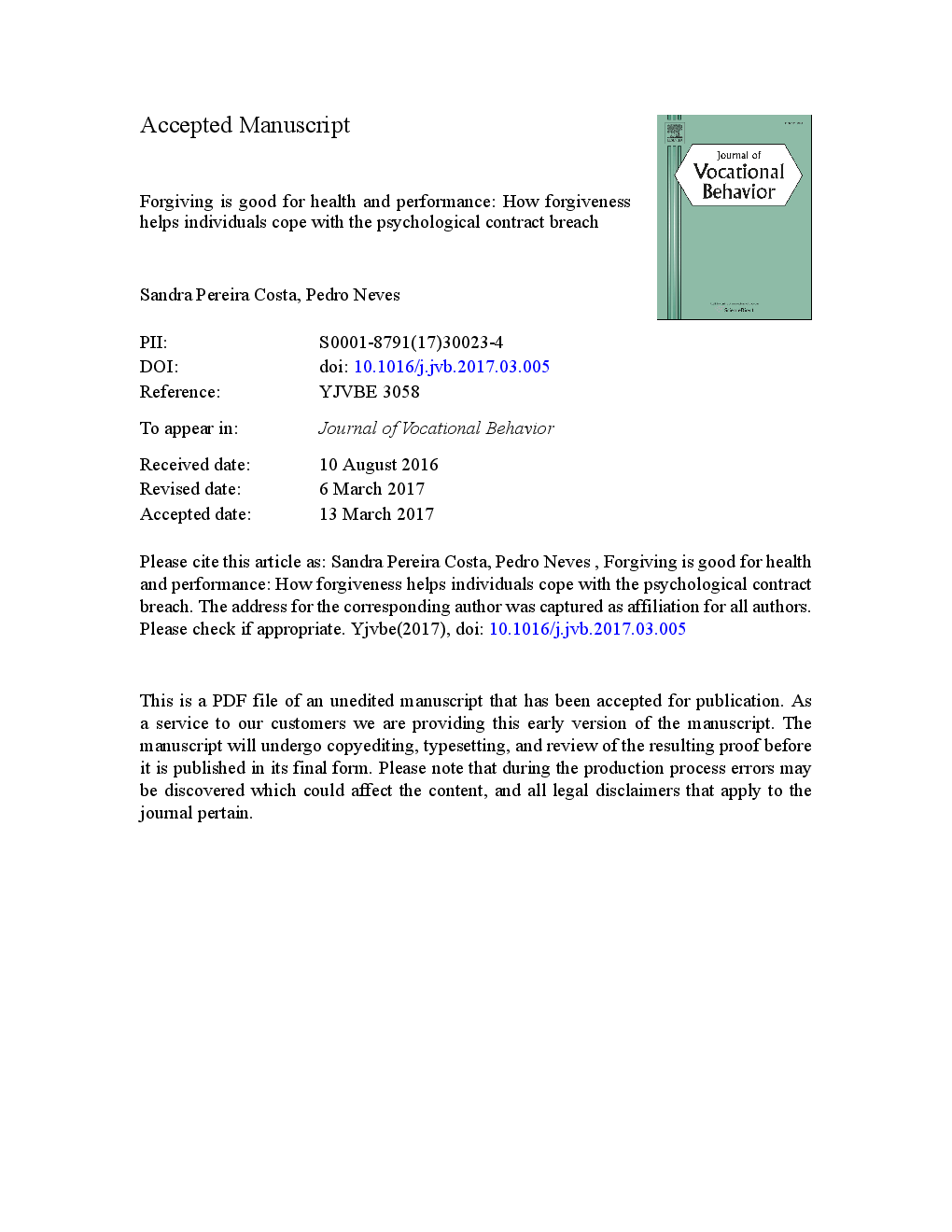ترجمه فارسی عنوان مقاله
بخشش برای سلامتی و عملکرد خوب است: چگونه بخشش کمک می کند تا افراد با نقض قرارداد روان شناختی روبرو شوند
عنوان انگلیسی
Forgiving is good for health and performance: How forgiveness helps individuals cope with the psychological contract breach
| کد مقاله | سال انتشار | تعداد صفحات مقاله انگلیسی |
|---|---|---|
| 98261 | 2017 | 47 صفحه PDF |
منبع

Publisher : Elsevier - Science Direct (الزویر - ساینس دایرکت)
Journal : Journal of Vocational Behavior, Volume 100, June 2017, Pages 124-136
ترجمه کلمات کلیدی
نقص قرارداد روانشناختی، خواسته های شغلی - مدل منابع و حفاظت از نظریه منابع، بخشش، انتقام کارایی،
کلمات کلیدی انگلیسی
Psychological contract breach; Job demands-resources model and conservation of resources theory; Forgiveness; Revenge; Performance;
ترجمه چکیده
تأثیر منفی نقض قرارداد روانشناختی بر نتایج، توجه محققان را افزایش داده است. با این حال، کمبود مطالعات در مورد منابع فردی بالقوه وجود دارد که ممکن است به کارکنان کمک کند تا با چنین نقض قرارداد روانشناختی کنار بیایند و تاثیرات منفی آن را کاهش دهند. بر اساس مدل منابع خواسته-کار، نقص قرارداد روانشناختی (زمان 1) را به عنوان استرس کاری شغلی و تأثیر مستقیم آن بر خستگی عاطفی و انتقال اثرات بر عملکرد نقش و رفتار شهروندی سازمانی (زمان 2) مورد بررسی قرار دادیم. بر اساس نظریه منابع حفاظت شده، ما نقش موثر آمرزش و انتقادات انتقادی را به عنوان منابع شخصی که افراد را قادر به مقابله با موقعیت های استرس زا می کند، مورد آزمایش قرار دادیم. با استفاده از نمونه ای از 220 نفر از کارکنان و ناظران آنها، نتایج ما نشان می دهد که شناخت بخشش نسبت به نقص قرارداد روانشناختی و خستگی عاطفی رواج دارد، در حالی که اثر شناخت انتقام غیر مهم است. این یافته ها نقش نقص را به عنوان یک استرسور مهم و اثرات منفی آن برای سلامتی و عملکرد، و همچنین اثر بافری از شناخت بخشش.

